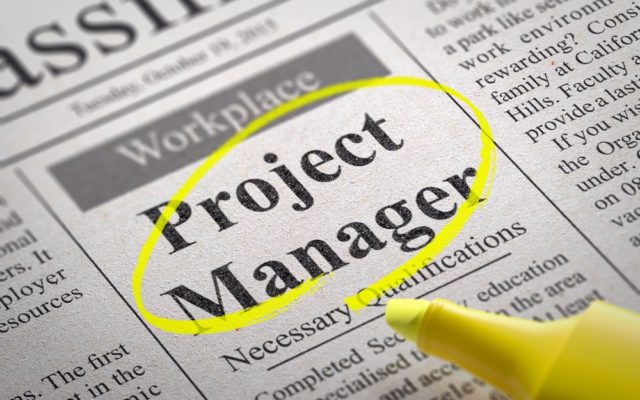In our last blog we talked about stakeholder engagement and how important it is to use the right mixture of skills when resourcing your project. Expanding on that theme, in this blog we will be discussing Programme Resourcing.
How to find the right people with the right skills and ensure they are available when you need them. Without this your programme will be compromised. Your risk of failure to deliver on time, to budget and to quality will increase without the right people in place.
Who do you need?
First of all identify the activities to be done. These should be on your programme or project plan. Separate these into positions and write a clear job specification for each one. This will help you identify the right person during the interview process. It is worth separating business change roles from IT roles to ensure you get a good mixture of the softer change skills along with more technical abilities from your team. If you are able to write the work packages in advance you will be able to hire to fill the work packages and you can be sure you are not over resourcing the programme.
How do you get them?
If you are recruiting externally don’t use an unknown. Discuss the roles with your agencies you are familiar with, agree a price and let them have a copy of the job descriptions. Ask for sample CV’s in return and highlight all the relevant skills for each role. Return this to the agencies and ask them to provide people with similar skills. Apply this process for permanent, fixed term and contract staff.
For the interview process predefine a list of questions that can be scored during the interview. Before candidates arrive determine what an acceptable pass is so if you have several candidates above the line you can offer it to the second if your first choice turns the role down. The interview needs to be sufficiently formal to test the applicant but not so much that they are unable to perform to the best of their ability. Normally two or three interviewers are a good measure, at least one person should be present who is there to take notes and score the answers. Use open questions such as “can you give me an example of when?” rather than just asking them to talk about their CV. This will give the candidate time to expand on their knowledge and for you to test how they handle different situations such as poorly performing project team members, governance or risk to name but a few. Put a few negative questions in such as “give me an example of when you have failed, how did you recover the situation and what did you learn”; this will test their ability to learn lessons.
It is important to see how each candidate can apply themselves in a challenging environment and test their competencies. The programme will require staff with good communication skills; give each of your candidates a paragraph of information and ask them to spend five minutes presenting it back to you. This will test their ability to absorb and understand information and also their presentation skills. For junior members of staff you will want to see how they perform under pressure, ask candidates to complete an “In-Tray” test. These are simple tests available on the internet to assess if interviewees can process information, write legibly and you may also want test their numeracy and reasoning skills. There are many tests available either free or for a small fee online.
When do you need them?
Planning the demand. There are peaks and troughs in any project and for budget purposes it is important not to have resources sitting idle. Don’t plan too far ahead yet ensure you leave sufficient time to find the right resources. It is a fine balance. Write a high level plan based on the key phase of the programme; document this in something like MS PowerPoint identifying the resources you will need at each phase and obtain sign off from the programme board. But don’t plan the detail of each phase until closer to the time. All projects change as they progress so there is little point in planning the training phase in detail if these resources are not required until the following year. Create a resource plan once you have sign off and identify the source routes open to you with budget allocations for each phase. Let Ideal know in advance so they can seek out some good people for you but be aware quality staff are usually snapped up and will not wait for a start date that is uncertain. A mix of contract staff and trust staff is a sensible option. EPR implementations are large programmes and it is unusual for a trust to have all necessary experience in-house. You need experts who have been there and are wearing the t-shirt to help you. Bring in the skills to fill capability gaps and ensure knowledge transfer occurs as a mandatory part of the programme. That way you will receive a good return on your resource investment. Large volume staff such as floor walkers and specialist trainers can be contracted in to support capacity gaps.
Building the Team
Let everyone know where they sit in the hierarchy. Who works for who and what each team member’s role and responsibility is. Give them a work package so their deliverables are clear. Where possible empower staff to manage subordinates to take the pressure off your programme manager. Burnout is a big risk to the programme and you must keep an eye out for signs of stress particularly in leadership roles. Give staff wide open activities. For example “Sarah you will run everything for training”. Because you have recruited an experienced training manager you can be confident they will be able to deliver to the plan.
Meet once a week to set objectives and deliverables and review progress. By doing this you will soon see who the good ones are and you can leave them alone freeing time up to manage the staff who are less experienced. Manage the activities rather than the effort required. Sarah has a month to design and write the training plan. By using the governance controls as long as Sarah is 25% through the work at the end of the first week, 50% by the second and so on you can see that this task is on target. Managing poorly performing staff can be difficult. It is good practice to find out why a team member is underperforming; it could be capability or it could be capacity issues. Either way set the individual tasks and micro manage them. Use your leadership skills to get close to them and try to support them. However ultimately there are time constraints on a project and poor performance will lead to delays. The risk of failure will increase so you may have to remove and replace team members where they are unable to deliver on time.
Change programmes can be high pressure environments so team bonding is important for moral; have a meeting on a Friday morning, take the team for a coffee and chat informally. This obviously depends on the size of the team but where possible keep a close working relationship with team members, you will find out a lot of what is going on through informal discussions sometimes more so than strict governance procedures which you will use to report progress upwards.
In next month’s newsletterwe will discuss writing an EPR business case; how to approach it, what it is used for and how to ensure it is effective.
Article by channel:
Everything you need to know about Digital Transformation
The best articles, news and events direct to your inbox
Read more articles tagged: Change & Transformation, Featured, Talent







